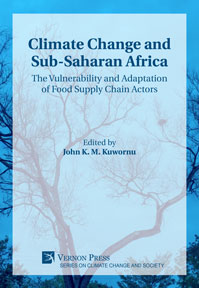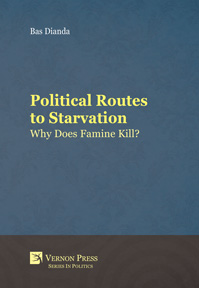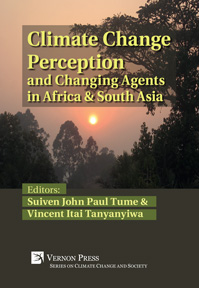Search
Browse
by Publication status
by Subject
Anthropology (26) Art (124) Business and Finance (26) Cognitive Science and Psychology (54) Communication and Journalism (45) Economics (62) Education (66) History (149) Human Geography (22) Interdisciplinary (42) Language and Linguistics (129) Law (16) Music Studies (18) Philosophy (157) Political Science and International Relations (103) Sociology (304) Statistics and Quantitative Methods (20)by Series
Series in Literary Studies (65) Series in Philosophy (59) Series in Education (51) Series in Sociology (42) Series in Politics (32) Series in World History (32) Bridging Languages and Scholarship (31) Series in Language and Linguistics (25) Cognitive Science and Psychology (20) Series in American History (20) Series in Philosophy of Religion (20) Series in Art (19) Critical Perspectives on Social Science (16) Series in Cinema and Culture (16) Curating and Interpreting Culture (15) Series in Critical Media Studies (14) Series on the History of Art (14) Series in Anthropology (13) Series in Business and Finance (13) Economics (13) Series in Music (12) Series in Communication (9) Series in Performing Arts (9) Philosophy of Personalism (8) Series in Law (8) Series in Economic Methodology (7) Series on Climate Change and Society (7) Women's Studies (7) Classics in Economics (6) Series in Economic Development (6) Philosophy of Forgiveness (5) Series in Built Environment (5) Series in Economic History (5) Series in Philosophy of Science (4) Series in Social Equality and Justice (4) Series on the History of Science (4) Serie En Estudios Literarios (3) Serie en Sociología (3) Series in Contemporary History (3) Series in Creative Writing Studies (3) Series in Design (3) The Interdisciplinary Built Environment (3) Serie en Comunicación y Medios (2) Serie en Historia (2) Series in Heritage Studies (2) Series in Innovation Studies (2) Series in Philosophy of Race (2) Serie en Ciencias Políticas (1) Serie en Entorno Construido (1) Serie en Estudios Culturales (1) Serie en Filosofía (1) Serie en Filosofía de la Ciencia (1) Serie en Música (1) Series in Classical Studies (1) Series in Economics of Technological Change (1) Series in Urban Studies (1)by Language
English Spanishby Author
Browsing with filters

Spoilt for Choice: How senior managers select professional advisors
January 2019 / ISBN: 978-1-62273-526-6Availability: Discontinued
300pp. ¦ $63 £48 €54
How do senior executives, such as CEOs and CFOs, interact, select and appoint professional advisors? Based on a successful PhD project, the research in this book explores the interactions between advisors of large professional service firms and senior executive clients on an evidence-based academic level. The research journey and the author’s reflections are charted step-by-step, providing an example of how to analyse unstructured qualitative data, reach theoretical saturation and capture emerging substantive theories. Moreover, by taking a unique holistic and inductive approach, this study offers a series of practical insights on how to combine and apply Kathy Charmaz’ constructivist grounded theory with an auto-ethnographic stance. Divided into eight chapters, the author uses empirical data and rigorous analysis to uncover two distinct decision-making processes, namely (a) the client’s decision to develop and maintain a relationship with the advisor and (b) to select and appoint the advisor for a particular project or services. Mapping these to one common conceptual framework a second complementary model emerges - a type of decision-making matrix with the foci ’competitiveness, skills and merit’, ‘continuity and embeddedness’, ‘control and manage’ and ‘trust and empathy’ - which offers the reader an alternative perspective of client decision-making. This book will be useful for practitioners and researchers alike who have an interest in understanding either naturalistic decision-making processes, the complexities of relationship development and procurement dynamics, as well as applied qualitative research methods.
Climate Change and Sub-Saharan Africa: The Vulnerability and Adaptation of Food Supply Chain Actors
Edited by
John K. M. Kuwornu, Asian Institute of Technology, Thailand
Availability: In stock
382pp. ¦ $56 £42 €48
The adverse effects of climate change and climate variability have become some of the biggest environmental and socio-economic challenges for society, and for food supply chain actors, in particular. Serving as a serious inhibitor to the attainment of food security, climate change poses a fundamental threat to the availability, accessibility, stability and utilization of nutritious food and quality drinking water. The threat of this global phenomenon is not only apparent from the difficulties faced by all food supply chain actors, but is also felt acutely by households dependent on semi-subsistence agriculture. As evidenced by numerous studies conducted by the academic community, governmental and non-governmental organisations, climate change and climate variability will have disastrous effects on entire food supply chains across the world. This edited volume looks to address: How vulnerable are food supply chain actors to climate change and climatic variability? What adaptation strategies are they adopting? How is the resilience of food supply chains being supported? Are they being financed and/or supported by international organizations to cope with climate change? And what governmental support are they receiving to help cope with climate change? This book is an essential resource for students, lecturers, researchers, agribusinesses, marketing firms, agricultural institutions, climate change adaptation institutions, policymakers and many others with an interest in agricultural development and the global food industry.
Political Routes to Starvation
Why Does Famine Kill?
April 2018 / ISBN: 978-1-62273-309-5Availability: In stock
432pp. ¦ $68 £49 €55
This book seeks to reclassify famine by offering an in-depth look at the phenomenon that continues to affect millions of people across the world every year. Defined as a widespread scarcity of food, Dr. Basilio Dianda argues that the causes of famine cannot be reduced exclusively to a shortfall in agricultural output or to economic dynamics. Instead, an analysis of famine must take into account political and economic factors as well as agricultural, climatologic and demographic data. ‘Political Routes to Starvation’ is the result of an all-encompassing analysis of eighty famines from across the globe. This extensive piece of research demonstrates that there are not only multiple factors at play in the genesis of a food crisis, but also in its evolution to starvation. Dianda contends that in order to fully understand the causes of famine it is necessary to reinstate a hierarchy between foundation and concomitant causes, especially when cross-comparing cases. Importantly, Dianda maintains that only a comprehensive approach to famine can appropriately answer the questions: What is famine? How does famine occur? Why does famine kill?
Climate Change Perception and Changing Agents in Africa & South Asia
Edited by
Suiven John Paul Tume, Green Care Association, Cameroon
and Vincent Itai Tanyanyiwa, Zimbabwe Open University, Zimbabwe
Availability: In stock
180pp. ¦ $57 £41 €46
‘Climate Change Perception and Changing Agents in Africa & South Asia’ presents first-hand experiences of climate change perception. Now more than ever understanding public perceptions of climate change is fundamental in creating effective climate policies, especially within countries that are particularly vulnerable to climate change. Striving to present a comprehensive study of climate perception in Africa and South Asia, this volume presents seven in-depth case studies from Cameroon, the Eastern Himalayas, Kenya, Nepal, and Zimbabwe. In order to combat climate change, effective communication is essential in order to educate, persuade, warn and mobilize the masses. Therefore, climate change communication is shaped not only by our different experiences and beliefs but also by the underlying cultural and politic values of a country. Within this volume, climate change communication is examined from Cameroonian, Kenyan and Zimbabwean perspectives. From the role of stakeholders to practical field experiences, the individual case studies present an interesting and informative portrait of climate change communication. It is often the poorest and most vulnerable people who are most affected by the impacts of climate change. Therefore, community-based adaptation is an approach that is aimed at empowering communities in the process of planning for and coping with climate change. In this book, this progressive and innovative approach is examined from a grass-roots perspective that looks to both the Eastern Himalayas and Zimbabwe. Readers are presented with case-studies that investigate the importance of indigenous knowledge, community-based research and the role of social workers in climate change mitigation. This high-quality resource puts forward a well-informed and accessible discussion of climate change perception that will be of interest to both students and scholars, alike.
Thinking Through Badgers
Researching the controversy over bovine tuberculosis and the culling of badgers
Stephan Price, University of Exeter
Availability: In stock
334pp. ¦ $60 £48 €55
Bovine tuberculosis is seriously damaging the UK dairy and beef industry. Many farmers believe culling badgers must be part of the solution, but in 2013 a record 300,000 people signed a Downing Street petition asking the government to stop planned culls of badgers in Somerset and Gloucestershire, fuelling media controversy and signalling the beginning of a social conflict that was acted out in studios, streets, fields and village halls across England. The four-year trial culls, which began that year, aimed to establish that culling was a viable way of tackling the disease, but the widely divergent experiences and values of policy-makers, farming, conservation and animal welfare supporters means that decades of science on the disease in badgers and the effects of culling has not helped resolve the dispute. Reporting on original, UK research council-funded social science, this book takes on the challenge of understanding the contrasting views involved. Listening carefully to what the different protagonists have to say, the book unpicks the way science is interpreted to sustain differing conclusions, and considers how social science thinking could contribute. The book develops a critical perspective on the increasingly important literature influenced by new materialism, the social science response to the Science Wars, and explores the extent to which a social movement around opposition to the culls is emerging. In approachable prose, this access-all-areas account describes the struggle to develop understanding through the messy process of research and the difficulties of scientific analysis and philosophical thought. As such, it provides a valuable resource for both research practitioners and teachers within the social sciences, as well as an accessible way for biological scientists, conservationists and farmers to reflect on the issues around the management of disease in livestock and wildlife.






